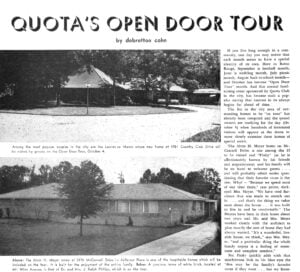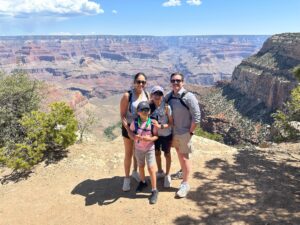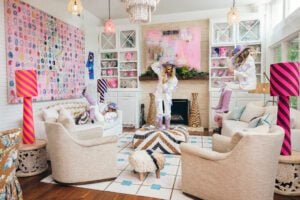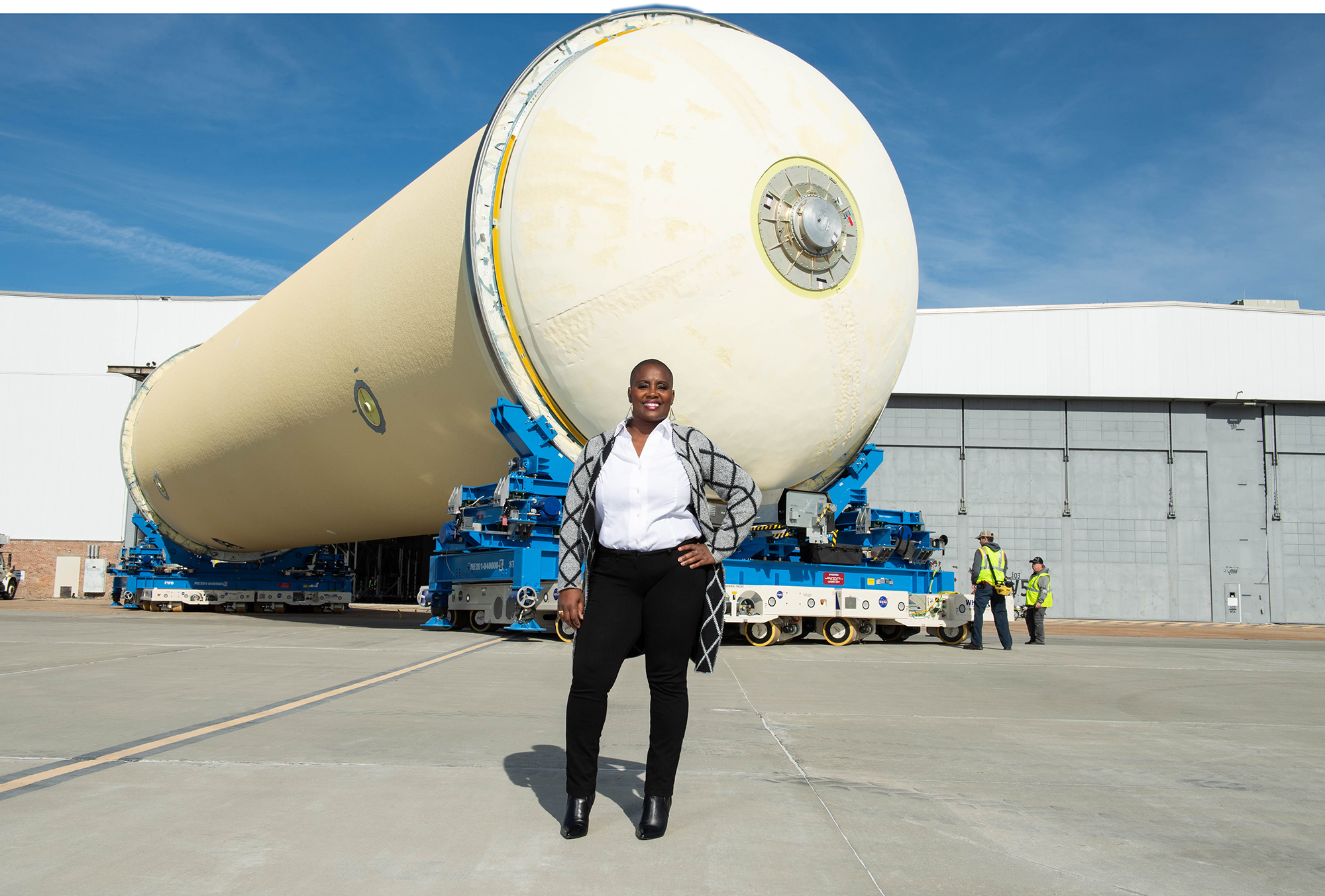
Lifting off: Renee Horton builds confidence—and rockets
‘You know what, it was nine years ago to the day,” says Renee Horton, interrupting herself. “Nine years ago on August 5, I walked across the stage, and there has not been another yet to follow in my footsteps.”
That was the day when Horton, Baton Rouge native and current Space Launch System quality engineer in the NASA Residential Management Office at the Michoud Assembly Facility in New Orleans, became the first—and only—African American to achieve a Ph.D. in materials science with a concentration in physics from the University of Alabama. Once a self-described geeky teen whose hearing impairments prevented her from fulfilling her dreams of becoming an astronaut, these days, her expertise in rocket science sustains NASA’s space launch systems designed for deep space travel—including the largest rocket fuel tank ever built—and takes her around the world, inspiring thousands with her journey to success.
Oh, and she writes poetry, too. 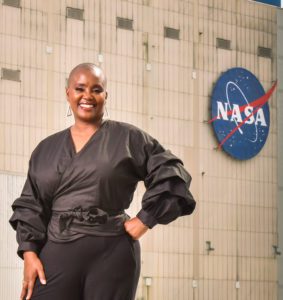
“It’s true,” she says, “I published a volume shortly before graduation. That was the first release of my creativity.”
Also the author of the Dr. H series of children books, Horton credits the birth of her third child, a daughter, now 22, as the impetus that drove her to realize her “unfulfilled purpose” after years of relegating space science to the backburner.
“I immediately knew as I was looking at her that I wanted the world to be different,” she says. “I wanted her opportunities to be different. And that is what truly shook me out of the pity party that had tricked me into thinking that there was something wrong with me, and that I’d never do something amazing in this world.”
Achieving a degree in electrical engineering from LSU in 2002, followed by the University of Alabama Ph.D. in 2011, Horton began work with NASA as a student in 2009, and as a mechanical test engineer in 2012. The project she works on now, the SLS Core Stage, might one day be among the tools that take astronauts to Mars, an achievement owing much to years of hard work and, on occasion, a sense of isolation.
“There were times when it was extremely lonely, being the only person like me in my program,” she says. “Even now in my career I can feel lonely when I walk into a room and there’s still no one who looks like me. The difference is that I’m really happy doing what I do now. All of that was worth it, and these days I spend a lot less time alone.”
Horton is committed to making sure her experience as a successful woman in STEM doesn’t remain an anomaly for long. Her nonprofit, Unapologetically Being, specializes in just the sort of mentorship that helped her succeed as a student, with as much emphasis on embracing happiness as embracing the drive toward careers in technology. For young women, this could mean learning how to identify and push past gender-based discrimination. For young men—especially young white men who already dominate STEM fields—this could mean learning how to be advocates for minorities, helping to open doors before they begin slamming shut.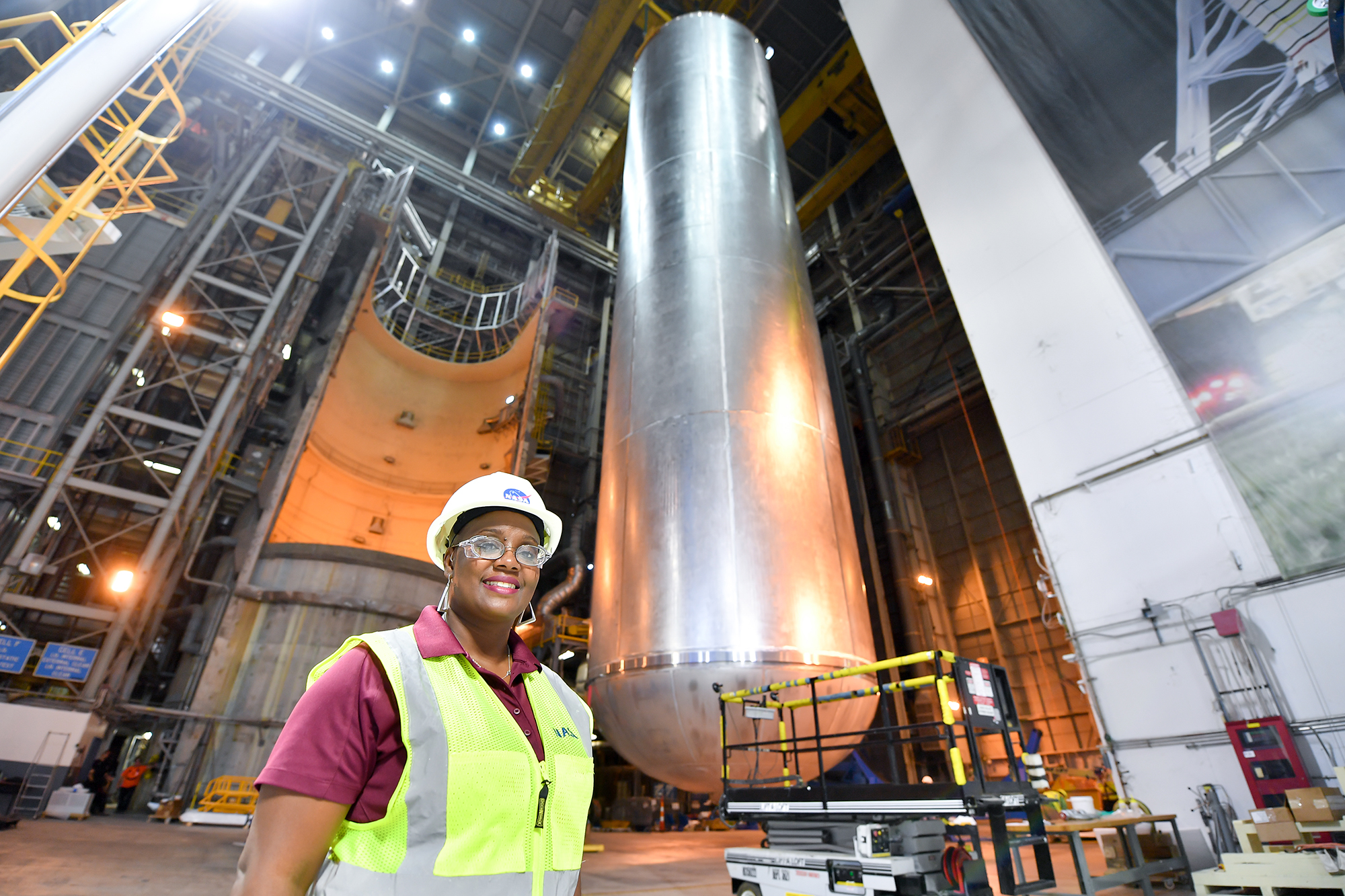
“Not all mentors need to look like you,” Horton says. “One of my Ph.D. mentors, Dr. Preston McGill, who works for NASA, was a huge influence on me. To him, I never was different, and that was a really positive thing for me during some tough times.”
Horton also credits her aunt, who likewise worked in STEM, for demonstrating an inspirational path to success, as well as Shirley Ann Jackson, the first female president of the National Society of Black Physicists. In 2016, Horton herself was elected to the office.
“It’s important to let kids play out their imagination without fear of gender roles,” she says. “Even cooking, which has often been relegated to ‘women’s work,’ is all about math and chemistry, but we don’t teach it that way. So mothers and women have often been overlooked.”
As for the next generation of young girls looking toward the stars but fearing to face the status quo? “You’ve got to do it anyway,” says Horton. “Growing up, I used to be one of those nerdy kids that other kids made fun of for liking reading and science. But now, I’m a rocket scientist. It’s okay to be different, and it’s worth it to explore all of those things that make you happy.”






